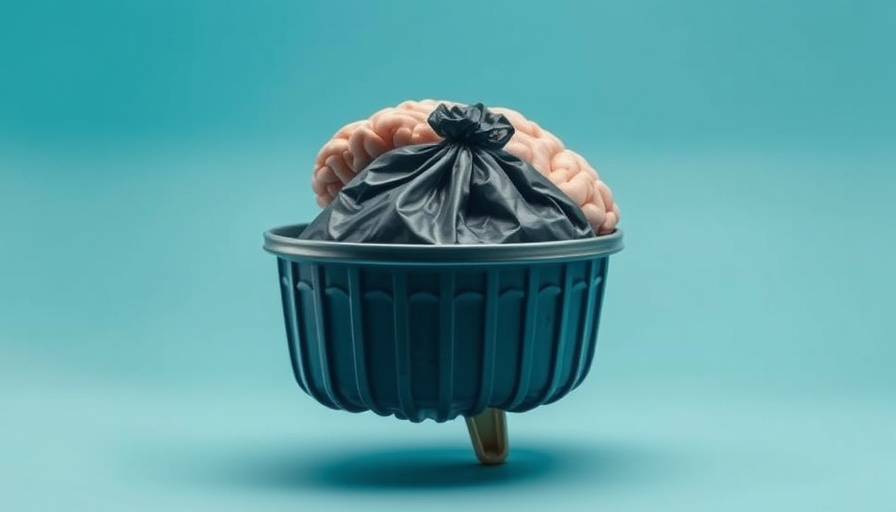
Unlocking the Secrets of Sleep: New Discoveries in Brain Cleaning
Sleep isn’t just about recharging our bodies; it’s crucial for our brains to flush out toxins accumulated during the day. Recent research suggests a fascinating mechanism where the brain’s cleaning process—a function typically active during sleep—can be enhanced through specific activities while we are awake. This breakthrough offers hope for improving sleep health, especially for parents managing their children’s sleep routines.
Understanding Sleep Health and Hygiene
Sleep health refers to the complex state of being well-rested and maintaining quality sleep. It affects everything from mood and productivity to long-term health outcomes. Insomnia and other sleep disorders, such as sleep apnea or restless leg syndrome, can severely impact a child's physical and mental well-being. This new finding emphasizes the importance of establishing good sleep hygiene practices at home.
The Connection Between Sleep and Mental Health
Healthy sleep is intricately linked to mental health. Lack of sleep can exacerbate anxiety and depression, and poor sleep quality can further contribute to the cycle of stress and emotional dysregulation. Understanding the brain's cleaning process highlights the importance of quality sleep as a preventive measure for potential mental health challenges in children.
New At-Home Technologies Enhancing Sleep
The advent of new technology offers parents innovative tools for improving their children's sleep. Devices that monitor sleep cycles and provide feedback can help families establish better bedtime routines. Additionally, the use of sleep apps that track patterns and customize recommendations based on sleep behavior provides an accessible approach to sleep education.
Practical Insights to Improve Sleep
To implement these findings, parents can focus on establishing a consistent bedtime routine. Activities such as reading, relaxation techniques, or meditation can be beneficial alternatives to screen time, which is linked to reduced sleep quality. Moreover, ensuring a comfortable sleep environment free from noise and distractions can promote better sleep duration and quality.
Cultural Perspectives on Sleep Patterns
Sleep practices vary across cultures. For instance, traditional African sleep patterns often involve more communal sleeping arrangements, which can influence sleep quality and duration. Understanding these cultural nuances can help parents appreciate and incorporate diverse sleep practices that benefit their families.
Future Trends in Sleep Research
The future of sleep research is promising, with ongoing studies investigating the intersection of technology and sleep health. This includes exploring how artificial intelligence can enhance personalized sleep experiences, helping families optimize their sleep environments with data-driven insights.
Call to Action: Take Charge of Your Family's Sleep
As new discoveries unfold in the science of sleep, parents have a unique opportunity to revolutionize their family’s sleep practices. By adopting at-home technologies and fostering healthy sleep habits, families can improve not only their sleep patterns but overall health and quality of life. Consider integrating these insights into your routine and become advocates for sleep health in your community!
 Add Row
Add Row  Add
Add 




 Add Row
Add Row  Add
Add
Write A Comment